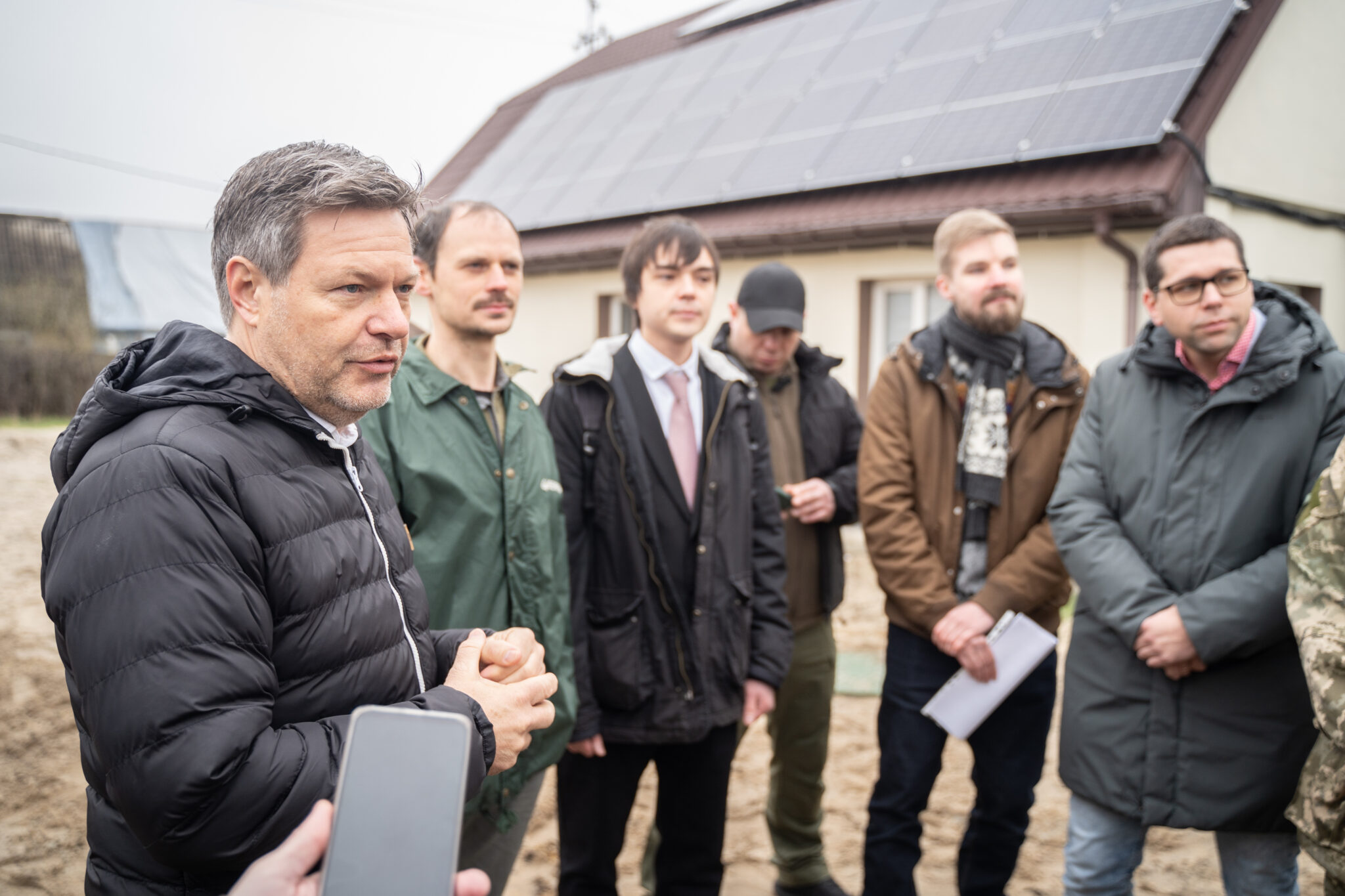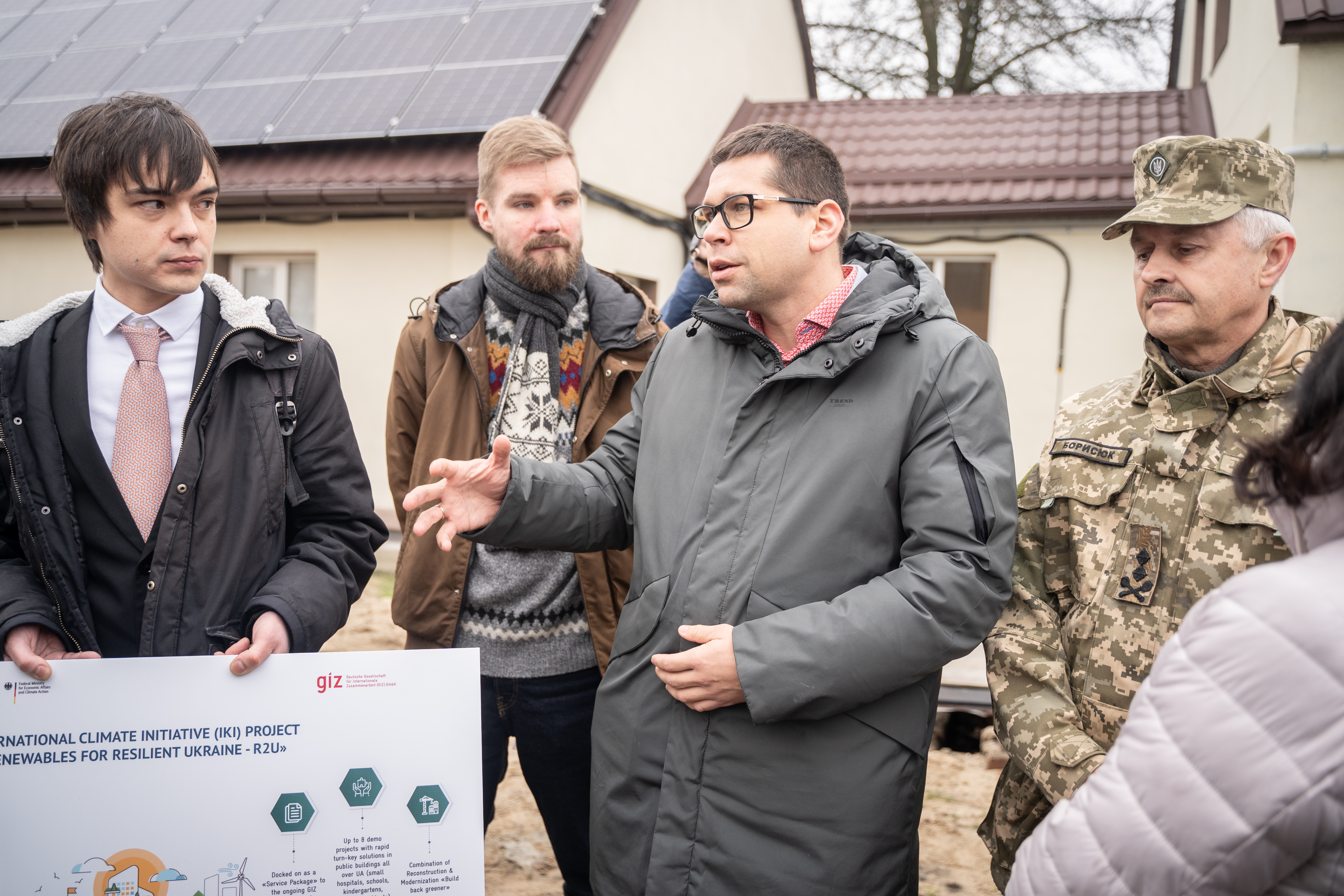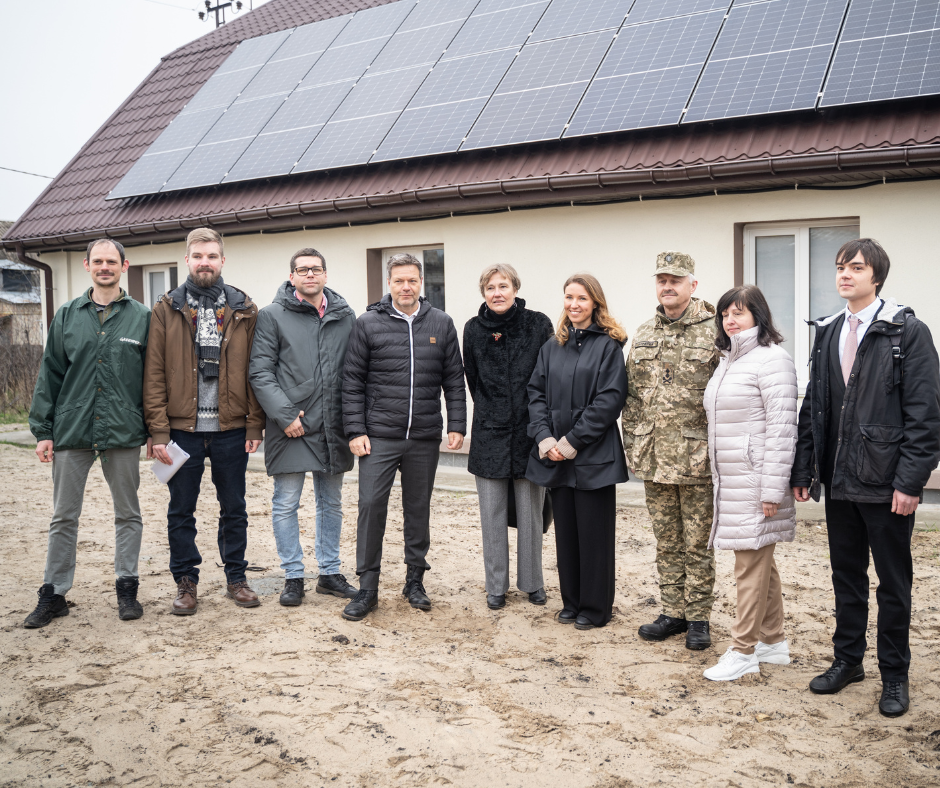The German government will allocate one million euros for green recovery projects in Ukraine. On April 4, German Minister for Economic Affairs and Climate Protection Robert Habeck announced the new support program at a meeting with environmental NGOs at the restored outpatient clinic in Horenka, Gostomel municipality.
The development of decentralized renewable energy projects on the ground is a step toward energy security and community independence. Therefore, Ecoclub hopes that the announced initiative will help municipalities and NGOs implement sustainable projects together.
NGOs Ecoclub, Greenpeace: Green reconstruction of Ukraine, Ecoaction, and the Charity Organization Energy Action for Ukraine Foundation attended the meeting. During the event, they discussed why Ukraine’s reconstruction should be green and how to support municipalities affected by the war and ready to restore social infrastructure using sustainable solutions.
“Ukraine’s recovery should be based on new standards. Municipalities demonstrate their readiness to implement renewable energy projects, which improves their energy security and independence. We, representatives of civil society, are actively cooperating with local institutions, and we show this in the examples of Zvyahel and Horenka. Accelerating the process of green recovery also depends on the support of governments,” said Dmytro Sakaliuk, an expert at the Ecoclub.
Representatives of civil society also emphasized the importance of establishing a working transparent mechanism for the transfer of equipment to rebuild municipalities. Communities have a demand for the development of energy-efficient solutions and renewable energy technologies (installation of heat pumps, and solar power plants). However, the government does not include such equipment in the lists of assistance requested from foreign partners. At the same time, the provision of integrated systems for the development of decentralized RES projects will greatly simplify their implementation (equipment for solar power plants, batteries, inverters, heat pumps).


“Decentralization of the financing process the recovery is very important. It is faster and more efficient to send equipment directly to communities. At the same time, we need a transparent mechanism for transferring such equipment to Ukraine. We also hope that the Ukrainian government will include solar panels and heat pumps in the list of emergency aid,” said Denys Tsutsayev, Greenpeace CEE campaigner.
Municipalities do not wait for victory and already starting reconstruction according to green principles. For example, the city of Zvyahel (Zhytomyr oblast) installed, with the support and coordination of Ecoclub, a solar power plant for the local hospital. Also, Greenpeace CEE and Ecoaction installed an SPP and a heat pump for the outpatient clinic building in the village of Horenka (Kyiv oblast). Another case happened in Irpin — the Energy Action for Ukraine Foundation, together with its partners, installed a solar power plant with batteries at the Mriya Lyceum. Now they are working on similar projects in medical institutions in Kyiv and Chernihiv regions.
On April 3, Robert Habek met with Prime Minister Denys Shmyhal and Minister of Energy of Ukraine Herman Halushenko. During the meeting, the German Minister for Economic Affairs and Climate Protection emphasized that the country would continue to support Ukraine financially, militarily, and economically:
“If Ukraine wants it, we are also interested in a broader positioning of the energy sector. The Ministry has a lot of partner companies and experience. We would like to join forces to solve this issue.”
The material is published within the framework of the project “Closing the Loop: A Just Energy Transition Designed by Cities and Regions” with the financial support of the European Union. Its contents are the sole responsibility of the NGO Ecoclub and do not necessarily reflect the views of the European Union.











